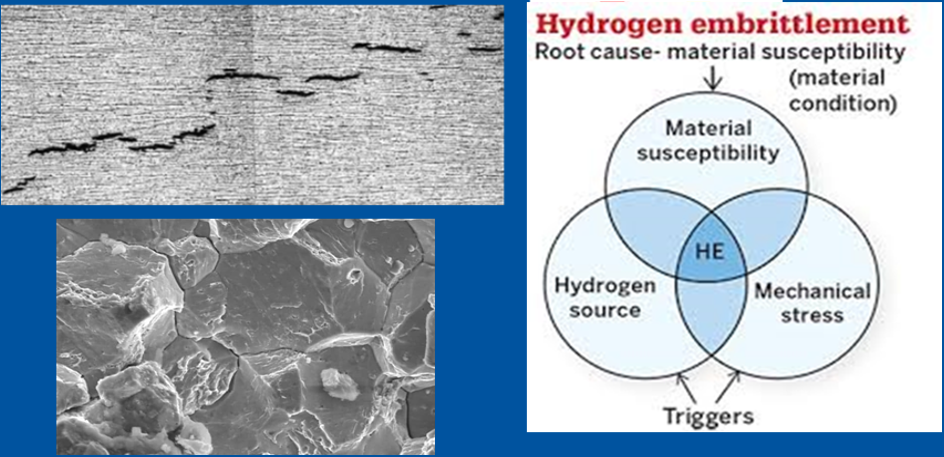Embrittlement: Hydrogen-Induced Cracking
Embrittlement: Hydrogen-Induced Cracking
The occurrence of hydrogen embrittlement is a much researched phenomenon, known to cause mechanical property degradation and catastrophic failures. The ductility loss brought about by hydrogen ingress is encountered even in unstressed bodies where such cracking is termed hydrogen induced cracking (HIC) and is in phenomenological contrast to catastrophic failures encountered by stressed bodies subjected to hydrogen producing environments.
This form of cracking is especially detrimental and often observed in oil country tubular goods (OCTG) which are subjected to sour gas.
Consequently, the significance of HIC is most appreciated by oil companies at various stages of oil extraction, transportation and storage.

The course will cover:
- Issues and Concerns: i.e., occurrences in pipelines and pressure vessels handling sour gas and oil (upstream and downstream operations), gas transmission pipelines, hydrofluoric acid service, etc.
- Mechanism, including the metallurgical and environmental conditions affecting the likelihood of HIC development. The related mechanism “Stress-Oriented Hydrogen-Induced Cracking (SOHIC)” will also be described.
- Field and Plant Monitoring Techniques.
- Inspection and Techniques.
- Metallurgical Control Methods
- Environmental Control Options
- Selection of Test Method and Acceptance Criteria
- Hydrogen Failure Mechanism, Failure mitigation and Material Selection
More information can be found in the Services section of this website.
Class Information
Field: Materials Engineering
Instructor(s): Dr. Mimoun Elboujdaini & Dr. Magdy Girgis
Current # Registered: 00
Session Schedule
Virtual Zoom Class
URL will be emailed once payment has been received
Start time: 9:00AM CST (4 hours per day)
Start Date: October 25th, 2021
— In Person Training —
